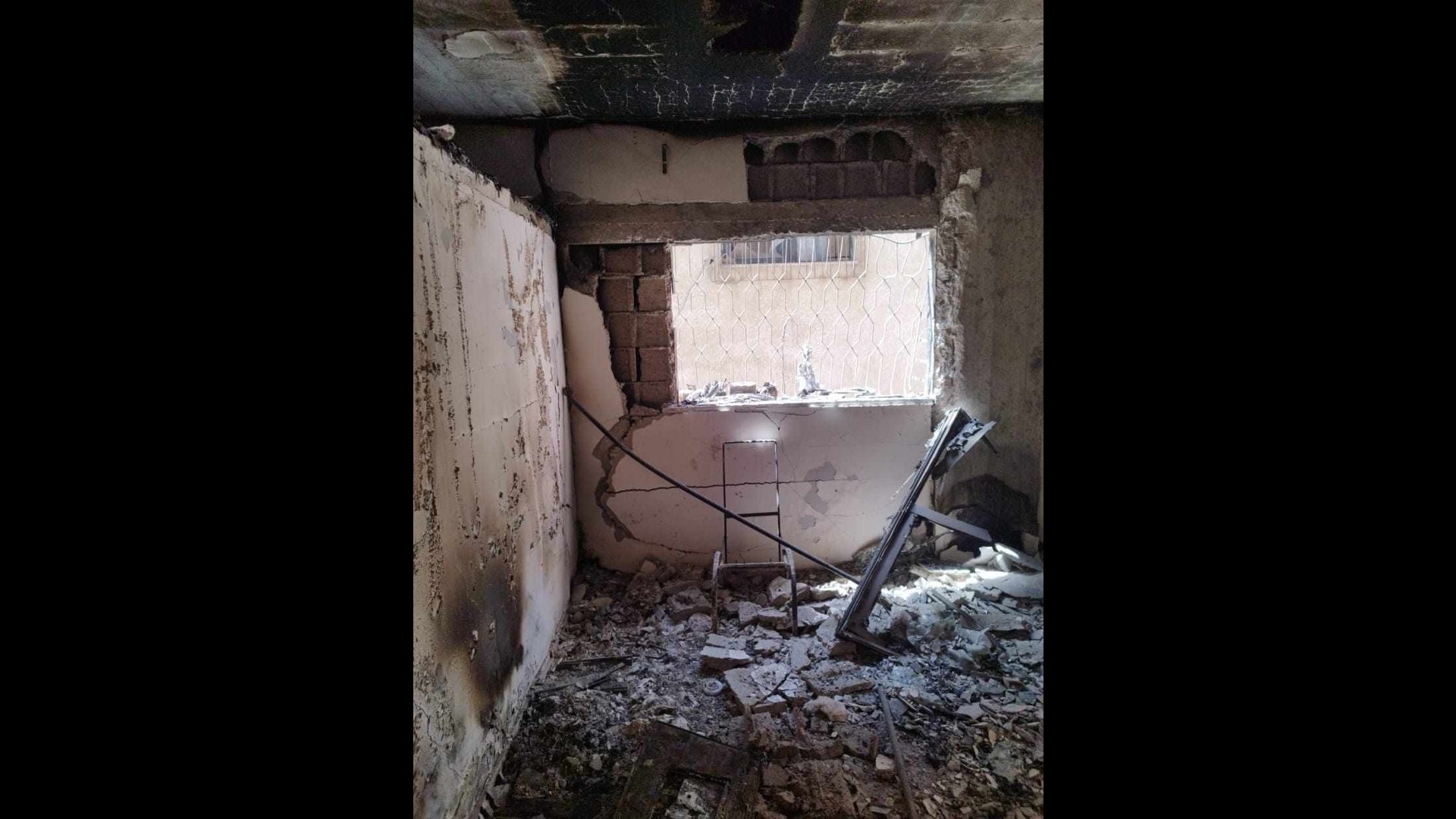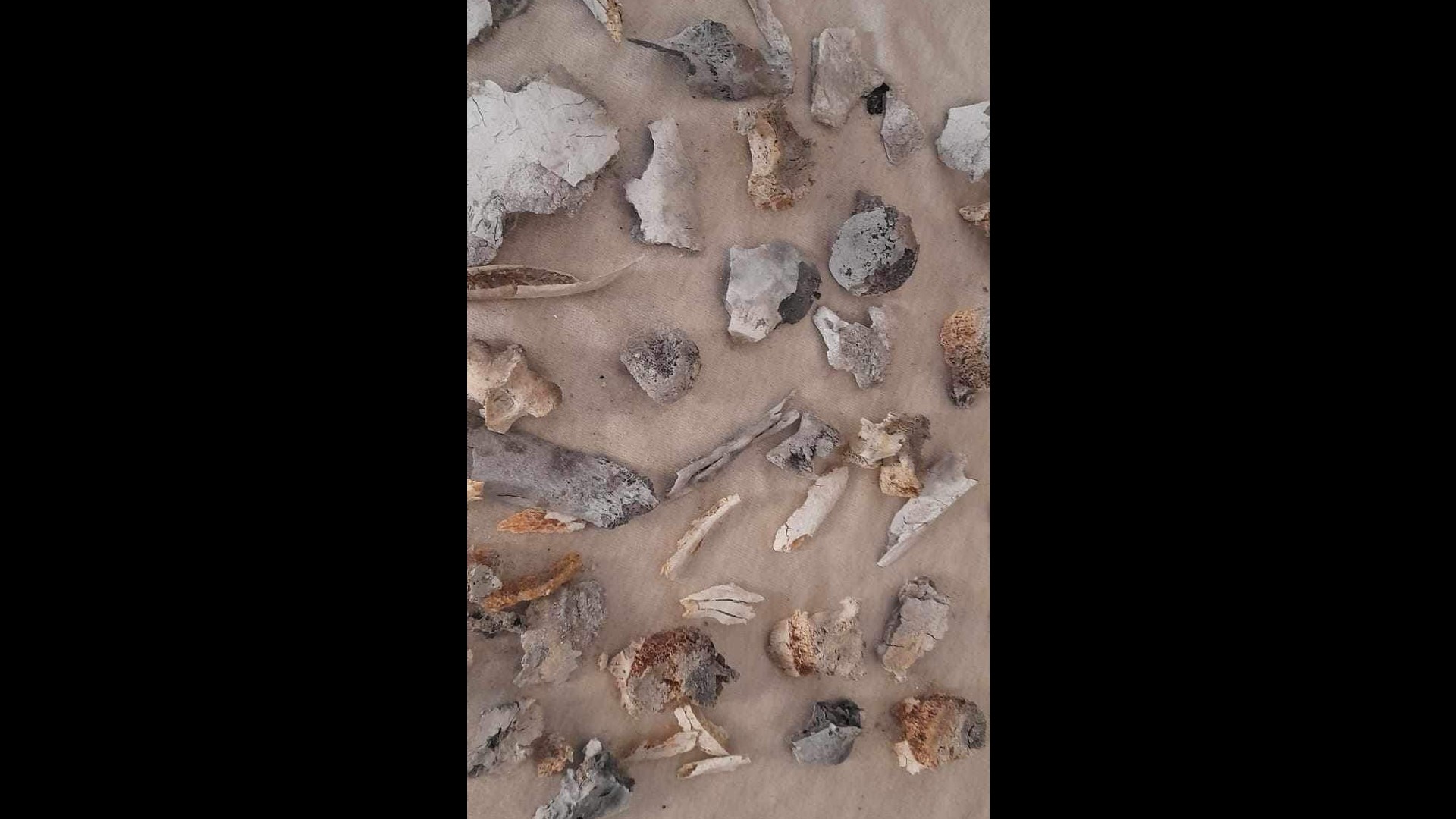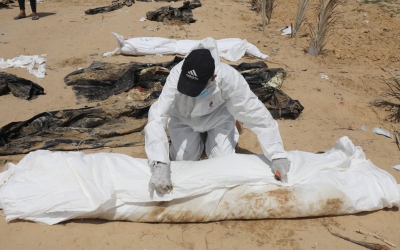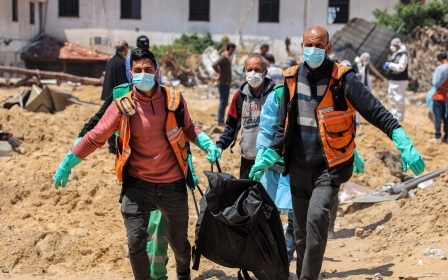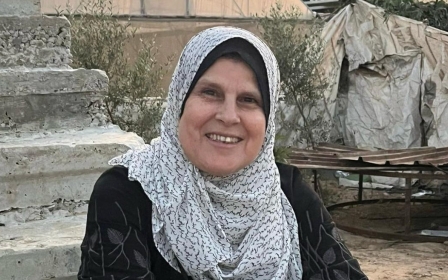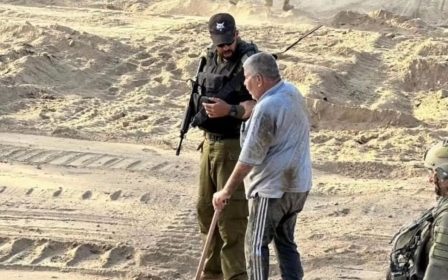War on Gaza: Remains of Palestinian grandmother found after Israeli raid
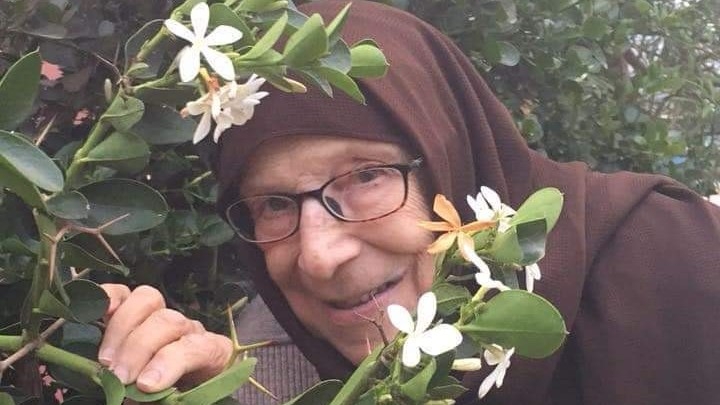
Editor's note: This story includes photographs which some users may find distressing
It took Naifa Rizq al-Sawada’s family an agonising two weeks to discover what had happened to their beloved grandmother following a raid by the Israeli army on her home.
The 92-year-old Palestinian woman, who suffered from Alzheimer's, was found as a pile of charred bones on her granddaughter's burned bed, according to her daughter.
Sawada had been separated from her family by Israeli soldiers during their assault on al-Shifa Medical Complex and its vicinity in mid-March in western Gaza City.
After raiding the multi-floor residential building belonging to Sawada and her married children, troops separated men and women, who were forced to head south.
New MEE newsletter: Jerusalem Dispatch
Sign up to get the latest insights and analysis on Israel-Palestine, alongside Turkey Unpacked and other MEE newsletters
When Sawada’s daughter-in-law asked an Israeli soldier to release the elderly woman with them, he refused, the family previously told Middle East Eye.
“We will take care of her,” he said.
'How could they leave her before burning the house?'
- Maha al-Nawati, Naifa Rizq al-Sawada’s daughter
For two weeks, the family did not know Sawada’s fate after they were forced to leave her behind.
They later received reports from neighbours that the army had set the building ablaze.
But they could not return to the building to see if Sawada was taken out before it was engulfed in flames.
On 1 April, the Israeli army withdrew from the area and the family finally reached the home and found Sawada’s charred remains.
Although it was unclear what happened in her final moments, the family were “devastated to imagine she was burned alive”, according to Maha al-Nawati, her daughter.
'Only bones left'
Nawati told MEE that as soon as the Israelis withdrew, her brother, sister and their children rushed to the building to find any traces of Sawada.
At first, they didn’t find her in the house, including in the living room and bedroom, where her bed was burned.
"They went up to the roof and found my niece and her husband; they were martyred. The army had shot and burned them. Their bodies were charred," said Nawati, speaking to MEE from Egypt where she recently fled.
In light of reports that Israeli troops used Palestinians as human shields during their raids of al-Shifa hospital’s departments, the family thought she may have been taken there.
Unable to walk or speak, they feared she might have been left without proper care. However, an even worse scenario unfolded.
Four days later, a neighbour told them she could not confirm that Sawada was taken out by the army during the initial raid and that she might still be inside.
The family returned to look again, this time searching Nawati's niece's apartment where Israeli soldiers gathered the women after they separated them from the men.
“[My brother and sister] entered my niece’s bedroom; her bed was charred, and the remains of mum's bones were there,” Nawati, 69, said.
“The army had taken her to sleep on the bed [before setting the house ablaze].
“There were only a few bones left. Other bones had turned into [ashes], and in her last days, my mum was very frail, so there weren’t many bones left. They collected them and took them [outside].”
The family wrapped their mother’s bones in a white cloth and buried them near her 22-year-old grandson who was killed by the Israeli army at the beginning of the Israeli assault.
“When he was killed, my nephew was buried under their home's wall, because we couldn't reach any cemetery [due to the Israeli siege]. We had to bury him there, and we buried mum next to him,” said Nawati.
‘How could they leave her?’
Since the beginning of Israel’s large-scale war on Gaza and the army’s siege of various areas of the Strip, many families have resorted to burying those killed in Israeli attacks inside their homes, in the streets or public parks and agricultural lands near their residences.
Many have endured staying in the same house with bodies of their family members that started to decompose, unable to open windows or doors to bury them outside, fearing nearby Israeli fire.
Upon the army's withdrawal from certain areas, dozens of mass graves, dug either by residents or troops, have been discovered, including at al-Shifa and Nasser hospitals, Gaza’s two biggest medical facilities.
More than 700 bodies have been exhumed from the two hospitals by civil defence teams so far.
In nearly seven months of war, Israel has killed 34,500 Palestinians. At least 7,000 more are missing - some hidden beneath the rubble of bombed buildings, some vanished without a trace.
Many of the bodies recently recovered from mass graves or bombed buildings have been completely decomposed, leaving nothing but their skeletons.
The idea that only a few bones were left of her mother still haunts Nawati, who is hundreds of miles away from her grave.
“Until this moment, I cannot stop thinking of what they did. Why? How could they leave her before burning the house?” Nawati said.
“My mother always helped others, so I'm sure God has taken her to a better place.”
Middle East Eye delivers independent and unrivalled coverage and analysis of the Middle East, North Africa and beyond. To learn more about republishing this content and the associated fees, please fill out this form. More about MEE can be found here.


